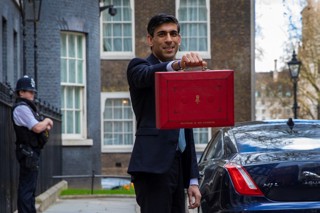The Government is being asked to look again at the rules governing the new super-deduction capital allowance, announced in last month’s Budget.
The Finance & Leasing Association (FLA) and the British Vehicle Rental and Leasing Association (BVRLA) want the measure to include leasing and plant hire.
Currently, the Government says that companies investing in qualifying new plant and machinery, from April 1, 2021, to March 31, 2023, will be able to claim a 130% super-deduction capital allowance, or a 50% first-year allowance (FYA) for qualifying special rate assets.
The 130% relief can be claimed against new equipment, including vans and trucks, but only if you are a limited company using a method of finance that means you obtain outright ownership at the end.
Expenditure qualifying for the super-deduction would have ordinarily been relieved at the main rate writing down allowance of 18%, while the special rate writing down allowance was 6%.
In letters to ministers, both trade associations welcomed the aim of the new tax measure, highlighting how it would make “some investment” more attractive.
However, they say that at a time when some businesses can ill-afford to make large capital expenditures, leasing or short-term hire are “particularly attractive routes” to acquiring newer and more productive plant and machinery.
For others, these options make good business sense because the assets will only be used for limited periods or need to be updated regularly.
They claim that expanding the scope of the super-deduction to include leasing and plant hire would benefit a much broader range of businesses and stimulate growth across all sectors, which is what the recovery requires.
Stephen Haddrill, director general of the FLA, said: “The Government’s decision to restrict the scope of the super deduction amounts to a serious missed opportunity to boost investment.
“The idea that businesses grow and become more productive by buying plant and machinery outright is out-dated. Leasing and hire make far more sense.
“It preserves cash in the business and can avoid having expensive equipment that stands idle. 70% of construction plant and machinery is hired in for specific periods for this reason. Government support needs to be designed around the way business is actually done not around the way HMRC still thinks it is done.”
Gerry Keaney, chief executive of the BVRLA, added that, considering the Government understands the role that the vehicle leasing sector plays in delivering the UK’s road transport decarbonisation goals, it made it all the more disappointing that leased vehicles have been omitted from the eligibility criteria.
“This is a huge oversight, and an example of where the Government has failed to align its fiscal and environmental policies,” he said.
“An increasing number of individuals and businesses are turning to the leasing sector for cleaner vehicles, but the sector has not been immune to the impact of the Covid pandemic.
“With Clean Air Zones popping up around the UK, this is the perfect time to incentivise the uptake of low- and zero-emission vehicles and leasing enables businesses to keep their cash to help get them through the recovery period.
“Making leased vehicles eligible for super-deduction would provide a boost to many businesses and would be a welcome shot in the arm for fleets.”























Norman Hyde - 20/04/2021 21:56
Maybe its restricted to purchases by design. Looks good on paper and makes government look like they are delivering solutions to the casual observer but in reality leasing still makes more sense.